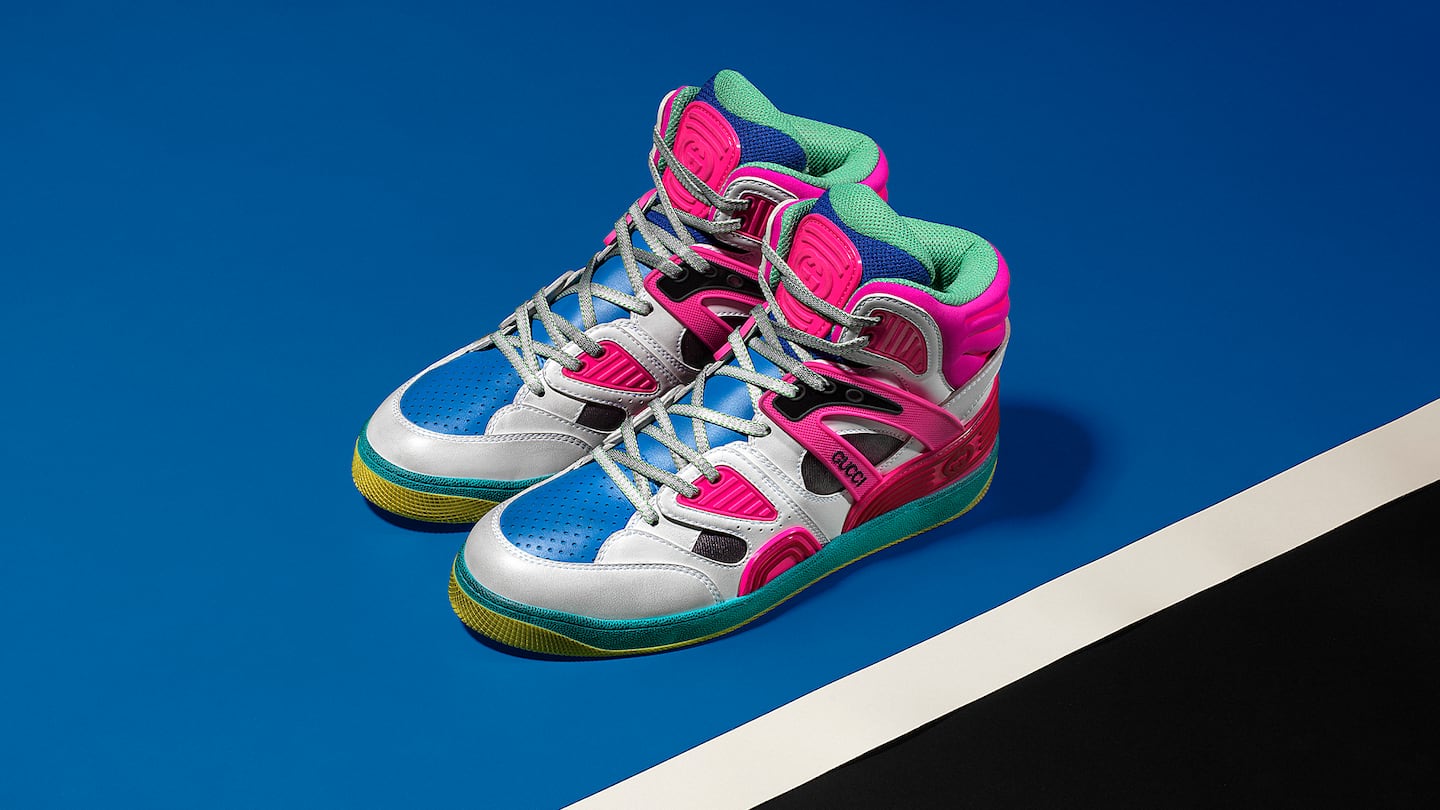
The Business of Fashion
Agenda-setting intelligence, analysis and advice for the global fashion community.

Agenda-setting intelligence, analysis and advice for the global fashion community.

Gucci is getting into material innovation.
The Italian megabrand said Thursday that it’s developed a new alternative to leather. The material, named Demetra in reference to the Greek goddess of agriculture and harvest, is vegan and largely made up of plant-based materials.
It’s the latest sign that new and innovative materials are emerging as one of fashion’s hottest trends, as brands seek to cater to younger consumers by marketing innovation and eco and ethical credentials. Though Gucci said it is in no way abandoning leather, it has launched vegan versions of its New Ace and Rhyton sneakers made with Demetra, organic cotton and recycled steel and polyester.
Price points for the shoes range between €590 (about $710) and €790, the same price range as those made with animal leather and other materials. A new sneaker model using Demetra, the Gucci Basket, will launch June 18.
ADVERTISEMENT
Gucci isn’t the only brand investing in new materials. Hermès has partnered with California start-up Mycoworks to develop Sylvania, a lab-grown leather alternative derived from mycelium, the root structure of mushrooms. Meanwhile, industry players including Stella McCartney, Adidas, Lululemon and Gucci-owner Kering have all committed to launching products with Mylo, another mycelium leather alternative developed by rival material science player Bolt Threads.
But many of the leather alternatives currently under development are still at the prototype phase, with products incorporating the materials not yet available for consumers to buy.
Gucci said Demetra, which it spent two years developing in-house with Gruppo Colonna, a Tuscany-based group of tanneries it majority owns, is already commercially viable. The company has filed to patent and trademark the material, which it plans to market to the industry more widely, starting with other Kering brands.
Demetra is made with up to 77 percent plant-based materials, including viscose and wood pulp compounds sourced from sustainably managed forests, and biobased polyurethane sourced from non-genetically modified wheat and corn, Gucci said.
Like many plant-based leather alternatives, Demetra still uses some synthetic components such as polyurethane and resin, to ensure the performance, quality and finish of the material. Gucci says it’s continuing to work to replace these elements with more sustainable alternatives.
The new material launch is part of a wider strategy to position Gucci at the forefront of efforts to develop a more sustainable fashion industry. The company went carbon neutral in 2019. Last year it partnered with The RealReal in an early sign of parent company Kering’s growing interest in resale. And earlier this week Gucci launched its first impact report, laying out the company’s efforts so far.
Related Articles:
Why Gucci Is Getting Into Resale
ADVERTISEMENT
Luxury’s Latest Battleground: Material Science
Gucci Looks to Set a New Trend on Carbon Neutrality
Traces of cotton from Xinjiang were found in nearly a fifth of samples from American and global retailers, highlighting the challenges of complying with a US law aimed at blocking imports that could be linked to forced labour in China.
The fashion industry continues to advance voluntary and unlikely solutions to its plastic problem. Only higher prices will flip the script, writes Kenneth P. Pucker.
The outerwear company is set to start selling wetsuits made in part by harvesting materials from old ones.
Companies like Hermès, Kering and LVMH say they have spent millions to ensure they are sourcing crocodile and snakeskin leathers responsibly. But critics say incidents like the recent smuggling conviction of designer Nancy Gonzalez show loopholes persist despite tightening controls.